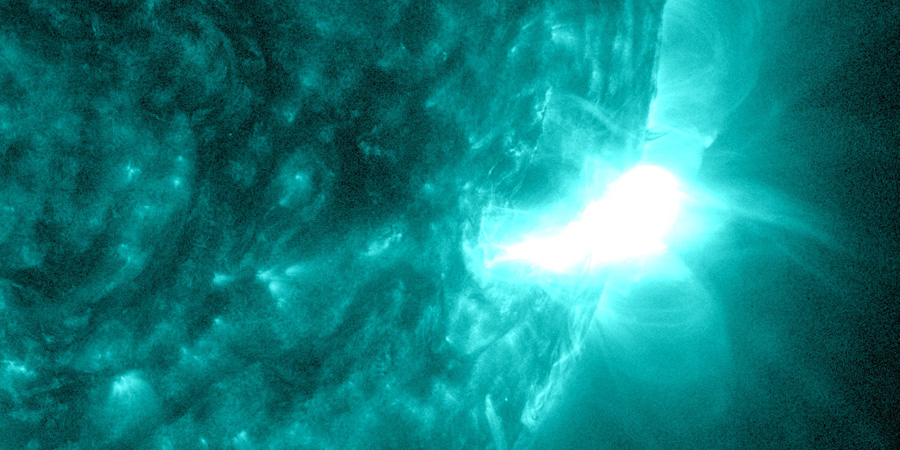Double X-flares, glancing blow possible
Tuesday, 8 October 2024 17:14 UTC

Solar activity reached high levels with an X2.1 solar flare that peaked at 19:02 UTC yesterday. This event came from sunspot region 3842 which was followed by a long duration X1.0 solar flare which was a combined effort between sunspot region 3842 and 3844.
The latter eruption produced a large coronal mass ejection of the west limb with LASCO showing an asymmetrical full halo coronal mass ejection. It did not look earth-directed from the get-go but with additional LASCO imagery we do see a asymmetrical full halo coronal mass ejection with the bulk clearly heading well south-west of our planet.
A strong impact at Earth from this event is not very likely, but a glancing blow or shock is very much possible. Hard to say what kind of activity to expect from it but we do not expect conditions above Kp5. Based on the speed of the cloud, a glancing blow could be possible early on Thursday, 10 October. The NOAA SWPC is still analyzing the event but in their latest analysis they did mention the cloud appears to be ahead of the Sun-Earth line.
After reviewing additional imagery from the coronal mass ejection launched during yesterday's long duration X1 event, we do see an asymmetrical full halo coronal mass ejection leaving the Sun. Our latest verdict is that a glancing blow should not be ruled out likely during the… pic.twitter.com/67J1fcn6Np
— SpaceWeatherLive (@_SpaceWeather_) October 8, 2024
Thank you for reading this article! Did you have any trouble with the technical terms used in this article? Our help section is the place to be where you can find in-depth articles, a FAQ and a list with common abbreviations. Still puzzled? Just post on our forum where we will help you the best we can!
Latest news
Latest forum messages
Support SpaceWeatherLive.com!
A lot of people come to SpaceWeatherLive to follow the Sun's activity or if there is aurora to be seen, but with more traffic comes higher server costs. Consider a donation if you enjoy SpaceWeatherLive so we can keep the website online!

Space weather facts
| Last X-flare | 2025/03/28 | X1.1 |
| Last M-flare | 2025/04/18 | M4.4 |
| Last geomagnetic storm | 2025/04/16 | Kp8- (G4) |
| Spotless days | |
|---|---|
| Last spotless day | 2022/06/08 |
| Monthly mean Sunspot Number | |
|---|---|
| March 2025 | 134.2 -20.4 |
| April 2025 | 120.5 -13.7 |
| Last 30 days | 116.6 -25.7 |


